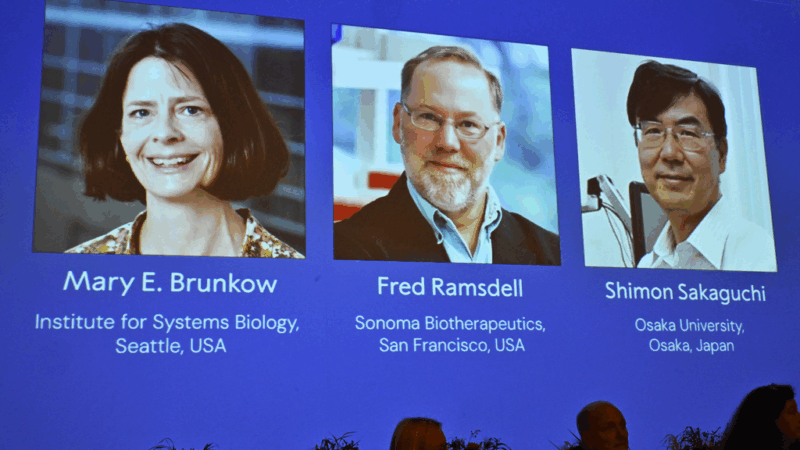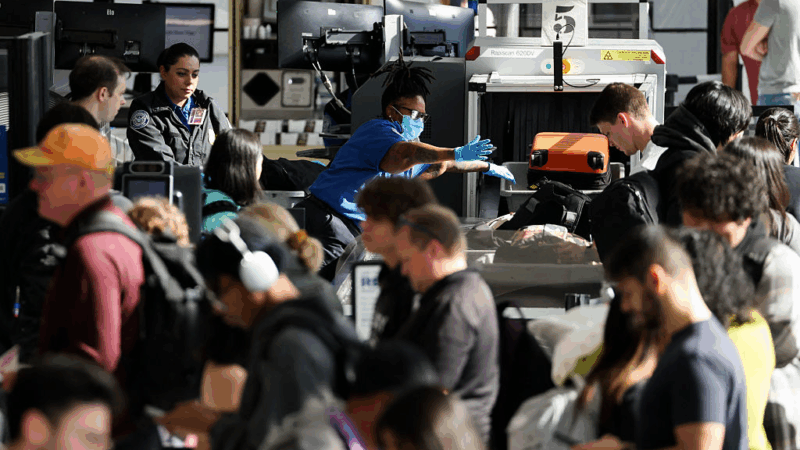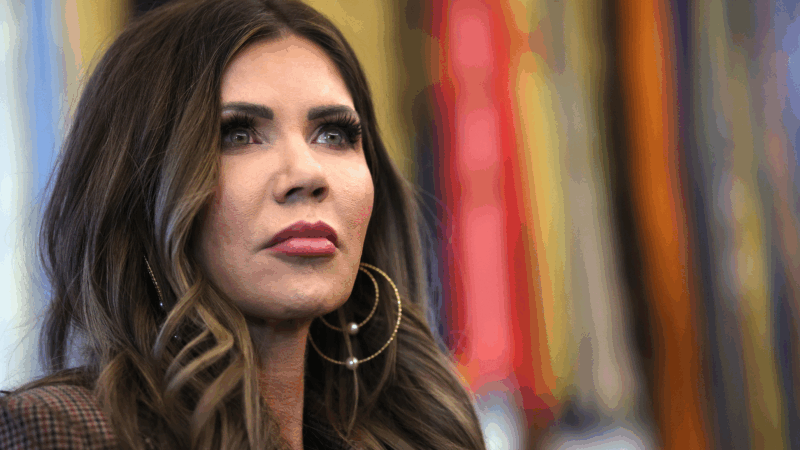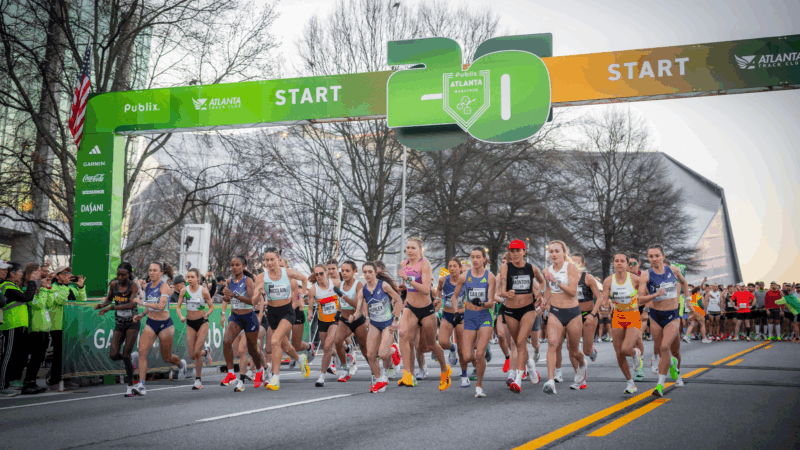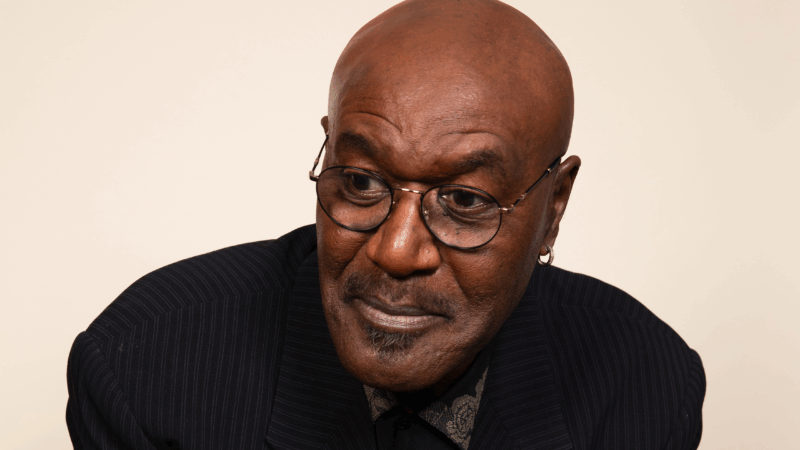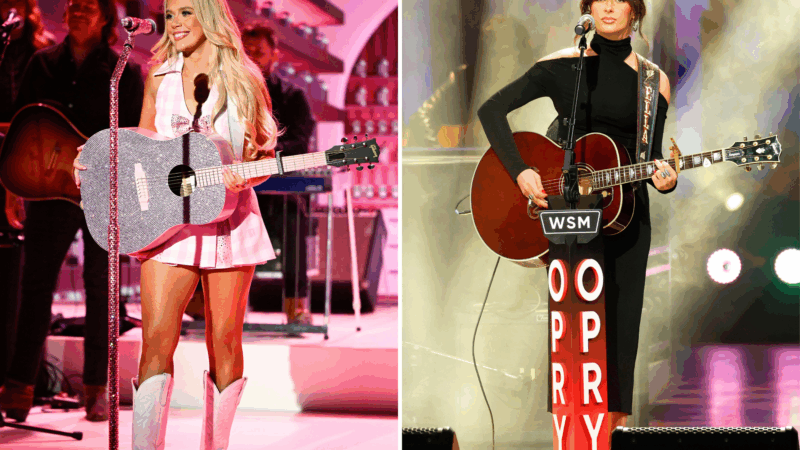The medicine Nobel Prize goes to 3 scientists for work on peripheral immune tolerance
STOCKHOLM — Mary E. Brunkow, Fred Ramsdell and Shimon Sakaguchi won the Nobel Prize in medicine on Monday for their discoveries concerning peripheral immune tolerance.
Brunkow is a senior program manager at the Institute for Systems Biology in Seattle. Ramsdell is a scientific adviser for Sonoma Biotherapeutics in San Francisco. Sakaguchi is a distinguished professor at the Immunology Frontier Research Center at Osaka University in Japan.
Peripheral immune tolerance is one way the body helps keep the immune system from getting out of whack and attacking its own tissues instead of foreign invaders.
Their work dates back to 1995, when Sakaguchi made the first key discovery. Brunkow and Ramsdell made another breakthrough in 2001 and Sakaguchi linked all of their work two years later.
“The laureates’ discoveries launched the field of peripheral tolerance, spurring the development of medical treatments for cancer and autoimmune diseases,” the Nobel Assembly said in a news release. “This may also lead to more successful transplantations. Several of these treatments are now undergoing clinical trials.”
Thomas Perlmann, Secretary-General of the Nobel Committee, said he was only able to reach Sakaguchi by phone Monday morning. He left voicemails for Brunkow and Ramsdell.
The award is the first of the 2025 Nobel Prize announcements and was announced by a panel at the Karolinska Institute in Stockholm.
Last year’s prize was shared by Americans Victor Ambros and Gary Ruvkun for their discovery of microRNA, tiny bits of genetic material that serve as on and off switches inside cells that help control what the cells do and when they do it.
Nobel announcements continue with the physics prize on Tuesday, chemistry on Wednesday and literature on Thursday. The Nobel Peace Prize will be announced Friday and the Nobel Memorial Prize in economics Oct. 13.
The award ceremony will be held Dec. 10, the anniversary of the death of Alfred Nobel, who founded the prizes. Nobel was a wealthy Swedish industrialist and the inventor of dynamite. He died in 1896.
Travel industry pushes Congress to end DHS shutdown and pay federal security workers
With the busy spring break travel season looming, travel and aviation industry leaders urged Congress to end the stalemate over DHS funding before workers at TSA and ports miss a full paycheck.
Trump fires Kristi Noem as DHS chief, names Sen. Markwayne Mullin to replace her
President Trump has fired his homeland security secretary, Kristi Noem, and said Markwayne Mullin, a senator from Oklahoma, would replace her.
They were led off course in a big race. But a fix is more complicated than prize money
Top finishers in the Atlanta half marathon are calling for U.S. track officials to ensure that Jess McClain and two other athletes aren't excluded from the world championships because of an error.
No matter what happens at the Oscars, Delroy Lindo embraces ‘the joy of this moment’
Lindo is nominated for best supporting actor for his role in Sinners. At the BAFTA awards on Sunday, Lindo was presenting when a man with Tourette syndrome in the audience yelled out a racial slur.
Between Megan Moroney and Ella Langley, country women rule the charts
It's a big week for women in country music — and, it turns out, for women whose songs are favored by women in figure skating.
A Jan. 6 rioter pardoned by Trump was sentenced to life in prison for child sex abuse
Since receiving presidential pardons, dozens of former Capitol rioters have gotten into more legal trouble. In Florida, Andrew Paul Johnson was sentenced to life in prison for child sex abuse.

